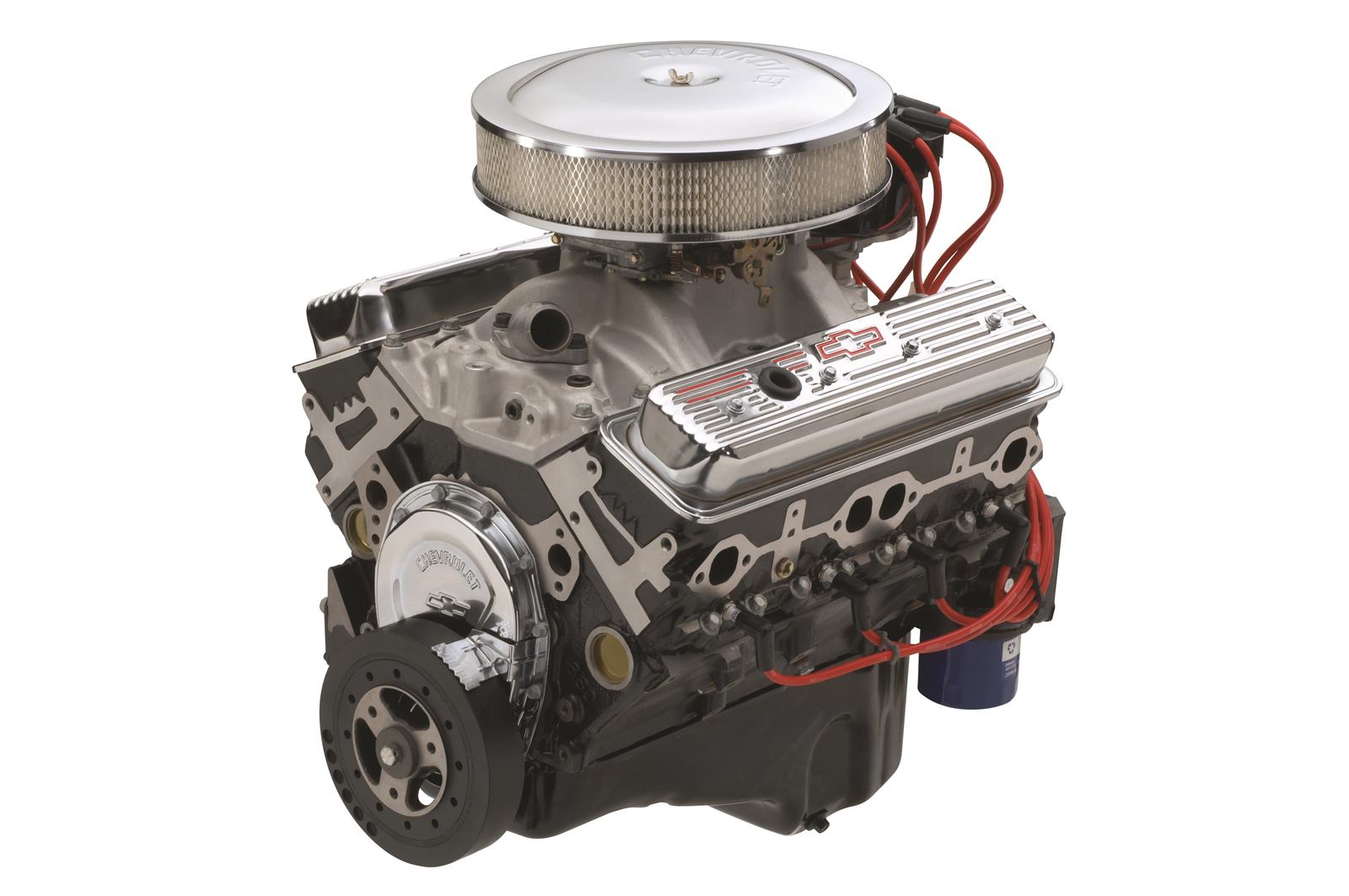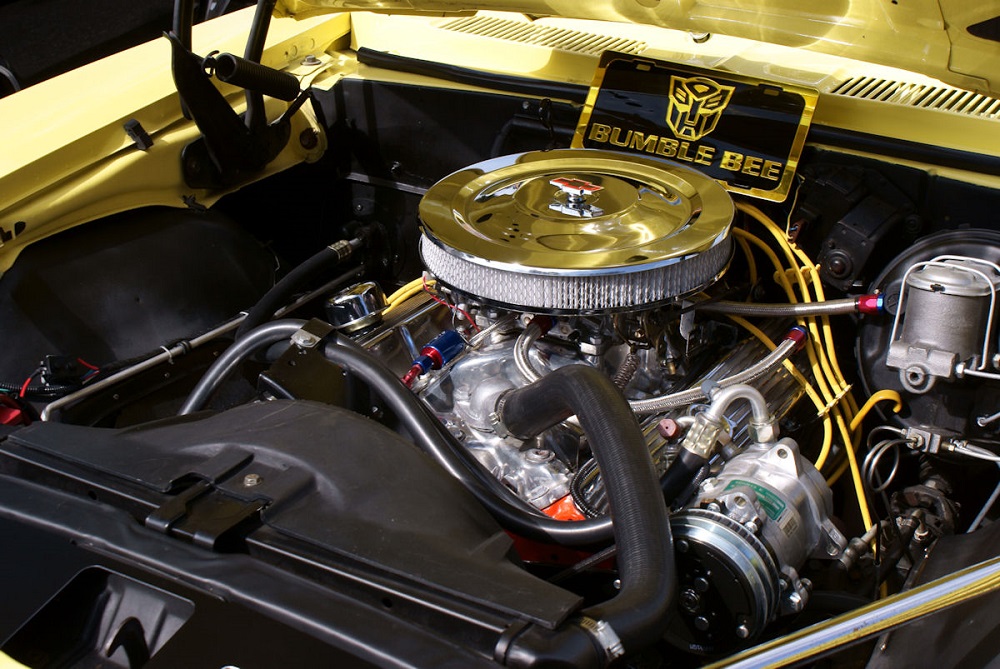Owning a V8 engine for the first time can be daunting, scary and above all else, exciting. I can’t begin to describe the first time you get to turn over a 350 and just bask in the glory of its characteristic rumble, like a stampeding herd of wild stallions in the Great Plains, or a thunderstorm in the open seas.
OK, enough waxing poetic, let’s get down to the nitty-gritty of firing up this bad boy. A Chevy 350 is a special machine that requires a gentle touch and precise tuning. One of the first steps you need to take when you get your 350 is figuring out the firing order of your engine.
But first . . .
What is a Firing Order?
In its most basic sense, an engine’s firing order is the precise sequence in which each cylinder receives a spark from the spark plug wires, which, in turn, ignites the gas/air mixture in a particular order. This is necessary for your Chevy 350 to work at max performance.
Remember that a Chevy 350 is a V8 engine. You can’t just fire everything up all at the same time; it needs to be done in a specific order so that the other cylinders warm up and sync with each other in a particular way.
Multi-cylinder engines are designed to have highly-coordinated firing orders to balance the engine, minimize vibrations, encourage smoother operation, as well as prolong engine fatigue life, and driver and passenger comfort.
Get your firing order right, and driving your 350 will feel like driving through clouds on one of the smoothest, most responsive vehicles ever. Get it wrong, however, and your ride will be bumpy, uncomfortable, and can even lead to early engine failure.
Every manufacturer has their own specific firing order for each engine variation, which means that the Chevy 350’s firing order is very different from the Cadillac 368, and wildly different from a Porsche or an Alfa Romeo. To get your Chevy 350 operating at its maximum potential, you’ll need to memorize the firing order of the Chevrolet small-block engine.
What is the Firing Order of the Chevy 350?

The Chevy 350 belongs to the Chevy small-block engine family. They’re called “small-block” or SBC because they’re smaller than big-block crate engines, or BBC (262 to 400cu’s, as compared to the BBC’s 348 to 572cu displacement).
However, the firing order for the Chevy V8, both the SBC and BBC variant is the same: 1-8-4-3-6-5-7-2. This means that cylinder 1 fires first, followed by cylinder 8, then 4, and so on and so forth until all cylinders have fired in that order.
Cylinders are often ordered in a particular way to make it easy for mechanics and car owners to identify them once they come rolling out of the factory.
For the Chevy 350, the cylinders are usually arranged from the front of the engine to the back, starting at the driver’s side. This means that the front left cylinder is cylinder 1. From there, the numbers alternate from left to right, with all the odd-numbered cylinders on the left of the engine, and all the even-numbered cylinders are on the right of the engine. To make it easier, just remember: driver-side cylinders are odd, passenger-side cylinders are even.
V8 250 Firing Order
The 1-8-4-3-6-5-7-2 firing order applies to a number of Chevy V8 SBC and BBC engines including the 350, the 267, the 302, the 400, the 454, the 502, and many more. Although it doesn’t usually cover the LS engines (introduced in 1995), it’s always best to check with your mechanic, or, better yet, check the owner’s manual that comes with your car (yes, those things are extremely useful).
Does the HEI Distributor Cap Have its Own Firing Order?
Yes. Most SBC Chevy’s use a High Energy Ignition, or HEI, distributor. The HEI Distributor is a small device responsible for facilitating the transfer of electric energy (i.e. voltage) from the ignition coil all the way to the spark plug.
For the SBC Chevy V8 engines, the HEI Distributor cap usually has firing orders that follow a clockwise rotation. In most cases, however, it doesn’t matter where the number one position is on your HEI Distributor, so long as the spark plug wires are connected in the right order. For the Chevy 350, the HEI Distributor Cap follows the same firing order as the engine: 1-8-4-3-6-5-7-2.
On a small block Chevy V8 engine, the distributor cap firing order is in a clockwise rotation. In most cases, it doesn’t matter where the number one position is on your distributor cap, as long as the plug wires are in the correct firing order.
What’s the Firing Order for All Engines?
The 1-8-4-3-6-5-7-2 firing order usually works on older V8* engines, thanks to its cross-plane crankshaft design, something you can find on other manufacturer engines’ like GM, Chrysler, and the Ford Windsor (excluding the 351).
Although Ford engines may seem like the firing order will be different (because of the way Ford engineers numbered their cylinders), the sequence remains exactly the same as the Chevy 350.
*However, this firing order does NOT work for the LSX series, as it has its own particular sequence.
A Chevy 350 Needs a Pro
Talk to your mechanic. Yes, you want to be as hands-on with your Chevy as much as possible (and you’re right to do so). But when it comes to something that you may not figure out, go straight to a pro.
A Chevy engine is a complicated piece of machinery. So no matter how many hours of Googling you do, your internet knowledge still won’t beat a mechanic with years of experience under their overalls.
As much as possible, get your engine repair and checkup done with a certified Chevrolet mechanic. Remember: the Chevy 350 is an older type of engine and requires a certain type of mechanic to inspect it.
More often than not, younger mechanics will be more well-versed with modern engines, like the Ram Jet 502 or the LS7, but may not have the mechanical know-how to completely help you with your 350.
No, you’re not less of a “car guy” or “car gal” just because you needed professional help to get the firing order of your Chevy 350 just right. In as much as you go to a doctor to get help when you’re sick, so should you go to a mechanic when your car, particularly your Chevy 350, starts sputtering like a newborn baby.
A misaligned firing order on the Chevy 350 is going to cause your engine a whole lot of trouble. It will be small at first, but as you continue to use it, it will get worse and worse. Some people mention that they can get their 350 to turn over, but they can’t get it to stay running. And that’s a clear sign of misaligned firing order. If you notice this happening to your engine, take it to a mechanic immediately.
Ensuring the right firing order for your Chevy 350 is just one step to avoiding common mistakes during car maintenance, but it’s a crucial aspect of keeping your engine healthy for decades to come. The Chevy 350 was built during an era of American automotive history when cars were built like brick houses and meant to outlast humanity itself, but it can only do that if you give it the love, care, and attention it deserves.
And trust me, treat your Chevy 350 right, not just by ensuring the right firing order but by keeping it oiled and cleaned at all times. And it’s going to reward you with smooth rides, a legendary rumble and powerful pulls as it catapults you through the countryside.

